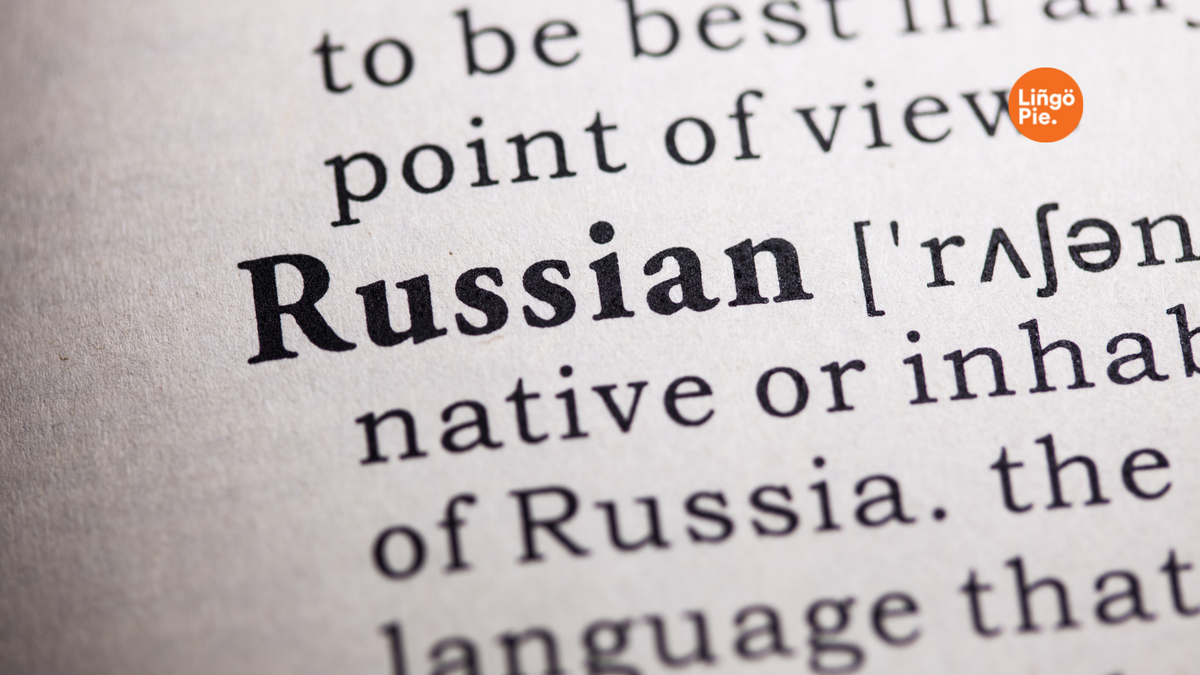You’ve decided to learn Russian — great! There are many benefits to learning this language, and it may be easier than you think.
Read on for more information on the best way to learn Russian and how to get started today!

The Benefits of Learning Russian
You may be wondering what is the most useful language to learn and whether Russian is high on the list. Well, it depends on your reason for learning.
If you’re thinking of learning Russian for career purposes, then this is a great call: the Russian market stands at nearly 150 million people!
As well as the business opportunities that it offers, when you learn Russian, you’ll also open the door to a career as a translator, an interpreter, or a teacher of English to Russian-speaking students.
If you’re planning on traveling to Russia, learning the language will enhance your experience, enabling you to navigate getting about, booking accommodation, eating out, and every other element of your trip with ease.
You’ll also be able to enjoy a more authentic experience and immerse yourself fully in the culture — plus, there will be the opportunity to converse with the people you meet, so that you may find yourself making new friends, business connections… maybe even love!
And last but not least, learning a new language has been scientifically proven to promote better brain health: it can result in improved memory function, concentration, and the ability to learn more effectively.
Bilingualism has also been found to be a protection against age-related cognitive degeneration.
Learn the Cyrillic Alphabet
Russia uses the Cyrillic alphabet, so it’s important to familiarize yourself with this before getting stuck into learning the language itself. But don’t worry, this needn’t be an intimidating prospect!
The Cyrillic alphabet has 33 letters and originates from the Ancient Greek script. Russia, Ukraine, Belarus, Serbia, and Bulgaria also use this alphabet.
Some of the letters both look and sound like their English counterparts, while others don’t bear any resemblance to the latter at all.
Have a look at Youtube for a plethora of free resources that you can access to get to grips with the Cyrillic alphabet.
You could also use a language learning platform like Lingopie, which offers a transliteration feature, allowing you to easily switch between the alphabets to help you learn.
What’s the History of the Cyrillic Alphabet?
- Two missionary monks invented Glagolitic, an early form of Cyrillic in the ninth century;
- Three extra letters were added in the eighteenth century;
- Lowercase forms were added in 1708 by Peter the Great;
- Azarbaijan, Turkmenistan, and Uzbekistan stopped using Cyrillic and switched to Latin script in 1991.
How to Learn Russian by Yourself
Now we’ve looked at some of the benefits of learning a second language, it’s time to plan how to do so!
If your lifestyle and commitments make attending a virtual or in-person class difficult, or you simply prefer the option of solo learning, then there are now innovative ways to learn the language on your own, including learning Russian by watching TV!
Immersive learning techniques involve surrounding yourself with as much of the language as you can, and as often as you can; ideally so that it becomes part of your daily life and routines.
Immersive techniques are the most effective way to gain proficiency in a new language and maintain motivation while learning, too.
Changing the settings on your phone to Russian, reading magazines and newspapers in the language regularly, or listening to Russian music are just a few examples of immersive learning techniques.
One of the most enjoyable ways to incorporate an immersive practice into your routine is to learn Russian by watching TV!
Watching specially subtitled Russian TV shows and movies is a fantastic way to swiftly gain fluency — and you’ll probably find that you quickly forget you’re learning at all as you get engrossed in a juicy box set or wrapped up in a thrilling movie.
A recent study showed that a group of learners who were asked to watch subtitled shows in a target language experienced a significant increase in both their acquisition of new words and phrases and in their confidence in listening to and speaking the language.
Getting Started
If you want to learn Russian with TV, then it’s easy to get started.
Once you’ve familiarized yourself with the Cyrillic language, either through a free resource or with the help of a transliteration tool, then all you need to do is find subtitled Russian shows and movies, or sign up to a platform that offers a wide-ranging and ever-changing library of films and TV shows.
Once you’ve chosen what you fancy watching, settle back and relax.
It may be a good idea to simply listen to the language for the first ten minutes or so, without trying to follow the subtitles; just let the tone, flow, and cadence of the language surround you, to get an overall feel for it.
When you’re ready, start watching with the help of the subtitles.
Don’t worry or panic if you can’t understand everything that’s going on at first — this is normal. Try to just get the gist of the dialogue or the action, and replay the scene as many times as you wish if this would be helpful.
Once you’ve increased in confidence, you may want to switch to Russian subtitles and, in time, will be able to turn off the subtitles altogether. You may be pleasantly surprised at just how fast you learn the language using this method.
Some learners find it useful to watch with a notebook and pen to hand, to jot down any words or phrases you want to check the meaning of later, or that you simply love the sound of!
Learn Russian in Ten Steps
If you want to do some more reading and plan your Russian learning journey more carefully, you can always follow the tried-and-tested steps in How to Start Learning Russian by Yourself in 10 Simple Steps.
Why Learning a Language with TV is Effective

It really is possible to learn Russian from TV shows and movies!
This method of learning is so popular as it allows learners to pick up the language in their own time, and to build learning into their lives in a sustainable and enjoyable way.
Watching Russian TV allows you to encounter lots of ‘real world’ conversations and phrases, not to mention the chance to hear some juicy bad language and fun slang!
Most learners also find that it’s easy to maintain motivation with this method, too — and you may find that friends and other family members want to get in on the fun, as well!
Luckily, there are plenty of options for family viewing, and a language learning platform should offer kids’ TV selections, too.
So — learning Russian could be one of the best things you do in 2022, and watching subtitled TV could be both the most effective and entertaining way to do so.
Learn a language with Lingopie and take the first steps on your language learning adventure today!
Or, why not try learning two languages at once?







![Russian Alphabet: Everything You Need to Know [2025]](/blog/content/images/size/w300/2025/04/Russian-alphabet-.jpg)

